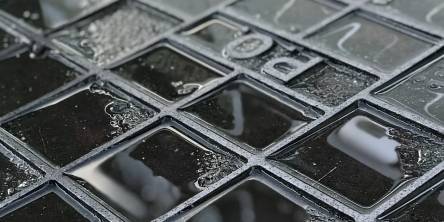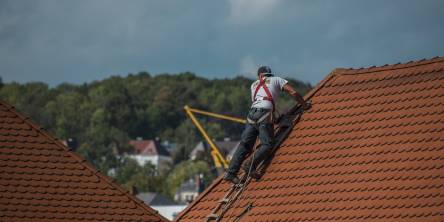How Long Does a Whole House Generator Last? 10 Tips for Maintenance

Many homeowners find a whole house generator invaluable for ensuring continuous power during outages. Understanding the longevity of these units and how to maintain them can significantly enhance their lifespan and performance.
Prospective and current owners alike commonly ask, 'How long does a whole-house generator last?' This article will explore the factors that influence the lifespan of these generators and provide practical tips for their maintenance.
Lifespan of a whole house generator
The lifespan of a whole house generator typically ranges from 15 to 30 years. However, this duration can vary widely based on several factors, including the quality of the unit, how often it's used, and how well it is maintained. For instance, generators used frequently as a primary power source in areas with frequent power outages may have a shorter lifespan than those used occasionally.
Factors affecting longevity
Several key factors influence the longevity of a whole house generator, including the following:
Quality and type of generator
Building quality and brand reputation can greatly impact a generator's lifespan. Moreover, different types of generators (such as diesel, natural gas, or propane) may have varying lifespans due to their inherent mechanical differences and fuel efficiency.
Usage
The frequency and intensity of use significantly affect a generator's lifespan. Generators used more frequently, especially those that serve as primary energy sources during frequent outages, tend to wear out faster than those used sparingly.
Maintenance
Regular and proper maintenance is perhaps the most critical factor in extending a generator's lifespan. This includes routine checks, oil changes, filter replacement, and ensuring that all parts are functioning correctly.
Installation
Proper installation by qualified professionals ensures that the generator operates under optimal conditions, which can prevent undue stress and potential damage.
Environment
Environmental factors also play a significant role. Generators in areas with extreme weather conditions, high humidity, or salt-air exposure are more susceptible to wear and corrosion, which can shorten their useful life.
Storage and handling
How the generator is stored when not in use and handled during operation can also impact its durability. Using covers, placing them on a clean, dry surface, and following manufacturer guidelines for storage can help prolong their life.
By understanding and managing these factors, homeowners can ensure that their whole house generator remains a reliable and adequate power source for many years.
10 tips for maintaining your whole house generator
Maintaining a whole house generator involves a combination of regular check-ups, proper usage, and preventative measures. Here are some of the best tips to help ensure that your generator remains in good working condition and prolongs its lifespan:
Regular professional maintenance
Schedule annual or semi-annual maintenance checks with a certified technician. These professionals can perform comprehensive inspections and services such as changing the oil, replacing air and fuel filters, and checking the battery and spark plugs.
Routine self-inspections
Between professional check-ups, regularly inspect the generator yourself. Look for any signs of wear, leaks, or corrosion. Check hoses, belts, and connections for tightness and overall condition.
Run the generator regularly
Even if there's no power outage, running your generator periodically is essential. Most manufacturers recommend running it for about 30 minutes at least once a month to charge the battery, lubricate the engine, and ensure it's ready for use when needed.
Use fresh fuel with a stabilizer
Always use fresh fuel and add a stabilizer to it to prevent oxidation and deposit formation. This is particularly important for gasoline-powered generators, as gasoline can degrade over time.
Keep it clean
Ensure the exterior of the generator and its components are clean and free from debris. Dirt and debris can clog vents and affect the unit's performance.
Ensure proper ventilation
Continuously operate your generator in a well-ventilated area to avoid overheating and ensure adequate airflow.
Protect from the elements
If your generator is installed outdoors, protect it from the elements with a generator cover or by housing it in an enclosure. This can prevent rust and weather-related damage.
Follow the manufacturer's instructions
Adhere closely to the manufacturer's operation, maintenance, and storage guidelines. For replacements and repairs, use only recommended parts and fluids.
Prepare for inactivity
If you know the generator won't be used for an extended period, prepare it for storage. This may involve draining the fuel, changing the oil, and disconnecting the battery.
Keep a maintenance log
Document all maintenance activities, repairs, and service checks. This record can help troubleshoot future problems and is also essential for warranty support.
By following these tips, you can help ensure that your whole house generator remains reliable, efficient, and ready to provide power whenever needed.
Conclusion
Following these tips ensures that your whole house generator remains a reliable energy source for many years. Regular maintenance prolongs the unit's life and enhances its efficiency and safety. If you're considering a new installation or need advice on maintaining an existing unit, consult a professional specializing in residential generators. They can provide personalized advice tailored to your specific needs and conditions.
Similar Articles
A well-maintained yard drainage system is key to preserving the beauty and health of any property. Poor drainage can lead to standing water, soil erosion, and even foundational damage to structures over time.
Keep your seaside home in top shape with these 4 expert tips! Learn about weatherproof materials, smart maintenance, and managing coastal challenges effectively.
Explore the future of roofing! Discover energy-efficient materials, smart systems, and sustainable designs reshaping modern home construction trends.
HVAC stands for heating, ventilation, and air conditioning. These all-in-one systems keep your home comfortable and improve air quality throughout a building. Often used in commercial buildings, HVAC units are increasingly used in residential buildings.
Safeguard your home after storms with timely roof repairs. Detect damage early, choose durable materials, and rely on a pro for lasting protection and peace of mind.
Learn how to balance a clean home and family life with these 6 practical tips to manage clutter, involve kids in chores, and set realistic expectations.
Homeowners are increasingly drawn to farmhouse-style architecture, which creates an inviting atmosphere in their homes that prioritizes comfort and coziness over aesthetics.
Discover transformative home renovation ideas for modern living, with trends, expert tips, and sustainable, budget-friendly practices to elevate your space.
Exterior shutters can make a brick house stand out, adding personality and charm. Homeowners often wonder if installing shutters on brick is a challenge, and it’s a valid concern.









